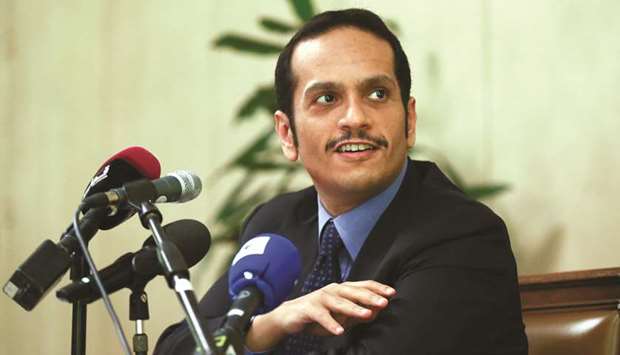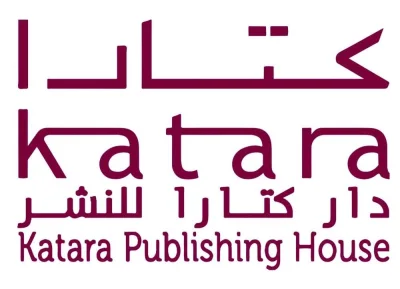HE the Foreign Minister Sheikh Mohamed bin Abdulrahman al-Thani has stressed that Al Jazeera is a source of pride in Qatar, given that it has worked for 20 years and at a time when only the voice of governments was heard.
Speaking on the demand to close Al Jazeera, he said the network became a platform for freedom of expression and different opinions for millions of Arabs.
The Minister said regardless of political differences, Al Jazeera remains an ethical news outlet that has proven its worth over 20 years, which is evident from the voices demanding its closure. Whoever wants to silence Al Jazeera must establish a channel that can compete with it, he noted.
Addressing a press conference in Rome on Saturday, HE Sheikh Mohamed said the State of Qatar invested in Al Jazeera to find a platform for freedom of opinion in the Gulf, stressing that Qatar will not abandon that investment. Decisions related to the future of Al Jazeera cannot be dictated from abroad, he added.
Responding to allegations that Al Jazeera promoted a rhetoric that incites violence, the Foreign Minister said channels belonging to the countries implementing the siege are inciting violence and calling for terrorist attacks in Qatar. He said these actions show the double standards these countries use and their inability to keep up with Al Jazeera.
On the Arab Spring, the Foreign Minister said it was made not by Qatar but was a result of a revolution by the people who suffered from tyranny and saw hopes of a better life in peaceful change.
He noted that Qatar did not support the Arab Spring, but did not stand in its way either. Further, he said Qatar helped the governments who emerged from the Arab Spring present something to their people.
The Foreign Minister said there were no terrorist attacks during the Arab Spring due to the hope of change. However, after facing that wave of change with violence and weapons, youth resorted to violence and as a result, extremist and terrorist organisations began appearing.
On the possibility of Saudi Arabia engaging militarily against Qatar, he said there were no fears from the Qatari side of a potential military operation. He also maintained that the international law must be respected and that Qatar would not accept any crossing of its borders by any party. “Qatar is in an area that must remain very stable,” he said, adding that their allies will not accept any escalation in a region considered vital to all countries around the world.
The Foreign Minister responded to allegations made by Saudi Arabia and its allies regarding Qatar’s support to terrorism by saying that such allegations were worthy of sarcasm.
He said Qatar’s counter-terrorism efforts were clear, especially that it hosts the central command for the global coalition against ISIS.
He added that Qatar’s combats terrorism with another strategic element that many other countries don’t consider, evident in its efforts in educating children in crisis areas as well as empowering youth and creating jobs in those areas.
HE Sheikh Mohamed said there were 7mn children worldwide who received their education as a result of programmes offered by Qatar. “Some 300,000 jobs for youth in North Africa were created, and all those initiatives were part of Qatar’s efforts to combat the root causes of terrorism.”
Responding to allegations of financing terrorism, he said this phenomenon was present in all countries of the region and not just Qatar. He added that Qatar was at the bottom of the list when it came to that crime, stressing that there were clear efforts by the country to reform the laws and put in place strict procedures to combat the financing of terrorism. He added that Qatar does not allow anyone who supports terrorism on its soil, and also protects Qatari financial institutions from becoming a platform for funding terrorism.
The Foreign Minister said the countries accusing Qatar of supporting terrorism were top of the list in that regard. He pointed out that there were financial institutions and citizens from those countries who were involved in financing terrorist organisations and terrorist attacks against Western countries and elsewhere. “International reports would show that Qatar was barely mentioned compared to the countries that imposed the siege on it.”
On ties with Tehran, HE Sheikh Mohamed said Iran is a neighbouring country of Qatar and the entire GCC. “Qatar wants to have friendly ties with Iran in light of that and due to the fact that both share borders in terms of gas,” he said, adding that these ties will be based on mutual respect and avoidance of intervention in internal affairs.
The Foreign Minister said those principles were adopted by GCC leaders in the last two summits, which shows that it is the GCC’s position rather than a unilateral move by Qatar.
Addressing the press meet, HE the Foreign Minister also said the four siege countries had prepared demands that were meant to be rejected.
He stressed that the demands violated international law and did not look to combat terrorism and instead focused on undermining and infringing on Qatar’s sovereignty, striking down on the freedom of press, and imposing auditing and probation mechanisms against the State of Qatar.
The foreign minister stressed during a press conference held yesterday in Rome that the countries which imposed the siege presented the list of demands to have them rejected, noting that Qatar wants instead to have a dialogue with suitable conditions.
He said that they are trying to be more practical with Kuwaiti mediation which is co-ordinated and supported by the US.
The foreign minister highlighted that the siege imposed on Qatar led to a humanitarian crisis for many families that were separated as a result of these measures.
He noted that there were 12,000 cases of husbands, wives and children who were separated as a result of these measures.
Sheikh Mohamed stressed that those measures were collective punishment, a violation of international law, and the UN Charter.
He said that the countries which took those measures did not respect international law.
The minister added that the siege countries implemented those measures without resorting to the conflict-resolution mechanisms agreed upon in the 2014 Riyadh agreement.
Even though the demands were made to be rejected, Qatar is trying to be more constructive than the other countries, he added.
The minister said that Qatar had no reservations against discussing any grievances those countries have, provided there was a clear basis for those grievances, that they do not violate the sovereignty of any country, and that they don’t impose any guardianship which is something rejected by Qatar.
He said Qatar is trying to be more positive with mediators in Kuwait, and in light of the US support.
On the position of the Arab League and the GCC from the crisis, the foreign minister said that both councils were muted regarding the illegal measures taken against Qatar.
He added that this showed Qatar that the two councils do not have any tools to resolve the crisis and did not play any role at all.
Qatar is relying on the mediation efforts led by the Kuwaiti emir, which is being supported by the US and all other friendly countries including Russia, Turkey, France, Germany, Italy, Britain along with many other countries, he said.
On the telephone call which took place yesterday between His Highness the Emir Sheikh Tamim bin Hamad al-Thani and Russian President Vladimir Putin, the foreign minister said that Russia does not want any escalation in the region and is encouraging all parties to engage in a dialogue.
The minister added that there were many meetings with the Russian side and many phone calls that took place between the Emir and President Putin.
The minister also discussed the US role and said it was true that they wanted to play a role of a mediator, but maintained that the US were part of the issue from the beginning.
The foreign minister called on US President Donald Trump to listen to the Department of State and the Department of Defence in matters related to the GCC crisis.
He noted that Trump relied in his remarks regarding the crisis on things said by leaders in the region, without mentioning who those leaders were.
The foreign minister expressed his confidence that if the US president refers to his official security and defence institutions, he will find the correct information on Qatar’s role in counter-terrorism.
He pointed out that the US-Qatari strategic ties extend for half a century and cover many aspects, adding that all institutions in the US understand the importance of Qatar.
HE Sheikh Mohamed concluded by saying that the policy of Qatar is based on principles and values rather than crises.
He stressed that the country would continue with its policy of supporting the Palestinian people and noted that rebuilding efforts were still ongoing. He also noted that the current punitive measures imposed on Qatar were an obstacle to these efforts.

HE the Foreign Minister Sheikh Mohamed bin Abdulrahman al-Thani attends a news conference in Rome, Italy.


